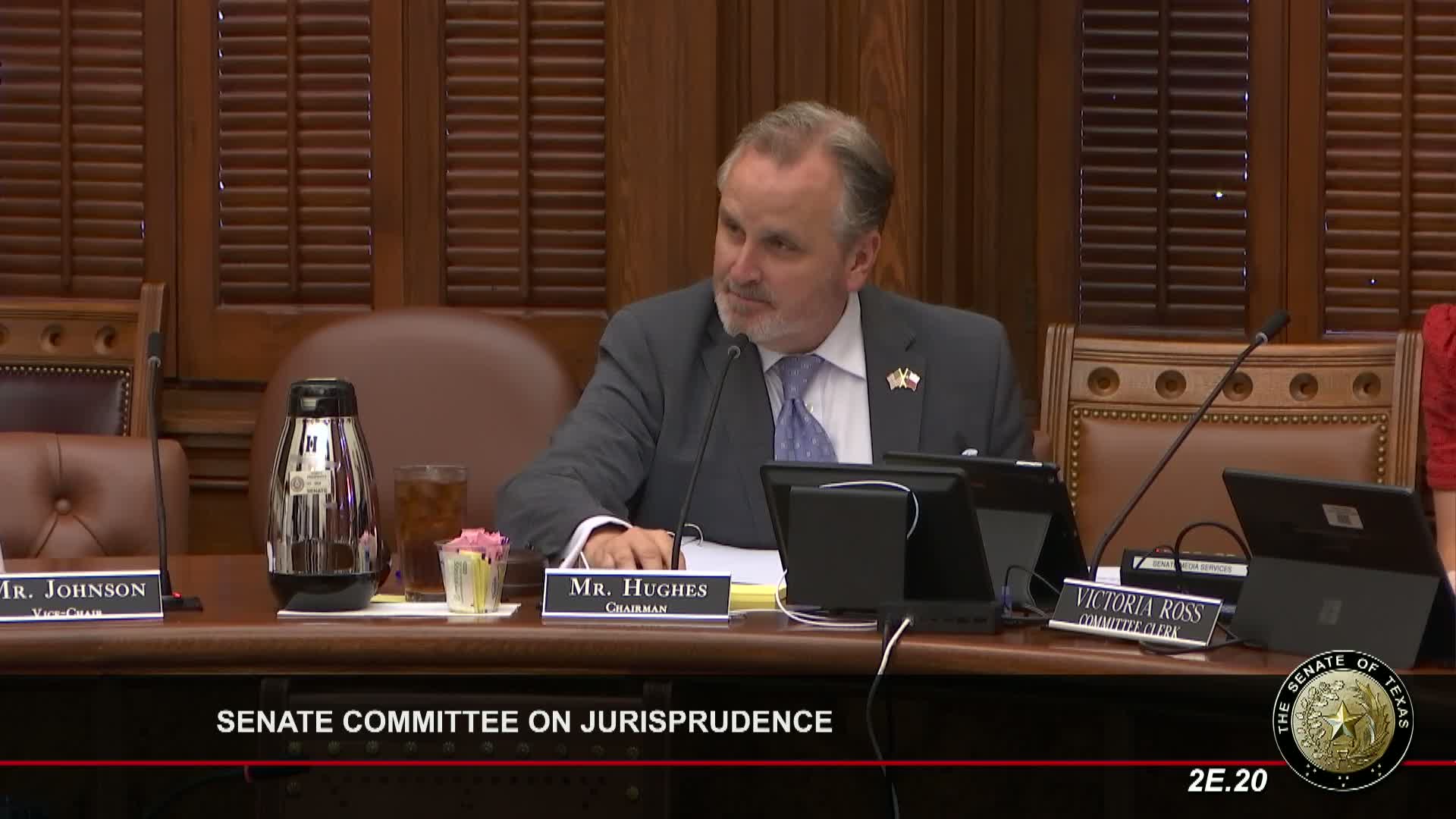Committee hears evidence to halve interest rate on child support arrears; substitute delays effective date
Get AI-powered insights, summaries, and transcripts
Subscribe
Summary
Supporters urged lowering interest on child support arrears from 6% to 3%, citing research and state arrears totals; a committee substitute requested by the Attorney General would delay the statute's effective date from Sept. 1, 2025, to Jan. 1, 2026. The committee took public testimony and left the bill pending.
The committee considered a substitute to Senate Bill 6 29 that would reduce the interest rate on past‑due child support from 6% to 3% annually and—per a committee substitute requested by the Attorney General—change the statute’s effective date from Sept. 1, 2025, to Jan. 1, 2026.
The Dean of the Senate summarized the scale of arrears and the bill’s intent, saying Texas faces “approximately $19,000,000,000” in unpaid child support and that lowering the interest rate from 6% to 3% would “make repayments more achievable, encouraging consistent payment behavior.” The committee then heard invited and public testimony in favor of the reduction.
Quentin Reiser, an assistant professor at the University of Wisconsin–Madison and faculty affiliate at the Sandra Rosenbaum School of Social Work, testified in support and described empirical research showing lower interest rates slowed arrears growth and increased monthly payments after Wisconsin halved its rate. “When we reduce interest rates, we don't reduce accountability. We increase the chances that parents can actually fulfill their obligations,” Reiser said.
Lisa Marshall, CEO and founder of Fighting Homelessness, testified the state leads the nation in child‑support debt with “over 1,100,000 cases totaling $19,000,000,000” and that only “637,000 of these cases are making any payment,” attributing widespread nonpayment to unmanageable debt growth under 6% interest. Taryn Champagne, who said she is “in favor of Senate bill 6 29,” urged broader reform and noted different caseload figures from the Attorney General’s data, saying she had seen “about 928,000 on arrears with about $21,000,000,000 in debt.”
The committee received the testimony, asked clarifying questions about the Wisconsin findings and payment effects, and closed public testimony. The chair announced the bill was left pending; no committee vote was taken on the record. The committee substitute alters the enacted date to Jan. 1, 2026, per the Attorney General’s request to allow additional implementation time.
